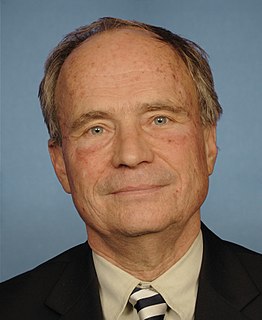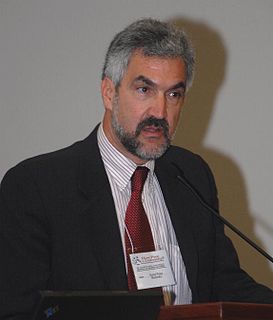A Quote by Charles Bass
But I think the global economy will understand that the United States has the ability to meet its obligations. But it's not going to be able to do it over the long term if we can't control the growth of government.
Related Quotes
In pursuing economic growth, India and the United States share similar values and similar challenges. We understand that the global economy is here to stay. To keep growing and leading the world in innovation and opportunity, the United States and India must trade freely, openly, and according to the principles of the global marketplace.
What the Supreme Court did in Citizens United is to say to these same billionaires and the corporations they control: 'You own and control the economy, you own Wall Street, you own the coal companies, you own the oil companies. Now, for a very small percentage of your wealth, we're going to give you the opportunity to own the United States Government.' This is the essence of what Citizens United is all about - and that's why it must be overturned.
The Bush Administration believes the Kyoto protocol could damage our collective prosperity, and in so doing, actually put our long-term environmental health at risk. Fundamentally, we believe that the protocol both will fail to significantly reduce the long-term risks posed by climate change and, in the short run, will seriously impede our ability to meet our energy needs and economic growth.
With the United States in slow long-term decline, how will that affect the position of English? And where will all that leave monolingual Britain? Our political leaders like to boast about how global Britain is, but when it comes to languages, it is near the bottom of the global league, together with another island state, Japan.
I ask particularly that those of you who are now in school will prepare yourselves to bear the burden of leadership over the next 40 years here in the United States, and make sure that the United States - which I believe almost alone has maintained watch and ward for freedom - that the United States meet its responsibility. That is a wonderful challenge for us as a people.
I have long been in favor of a balanced budget restriction at the level of the federal government of the United States. Because the federal government has money-creating powers it can, in fact, be very damaging if it runs a series of budget deficits. With the state government in the United States, they don't have money-creating powers. The automatic discipline imposed by the fact that they are in a common monetary unit and don't have control over the money power means that the balanced budget restriction is less needed.

































